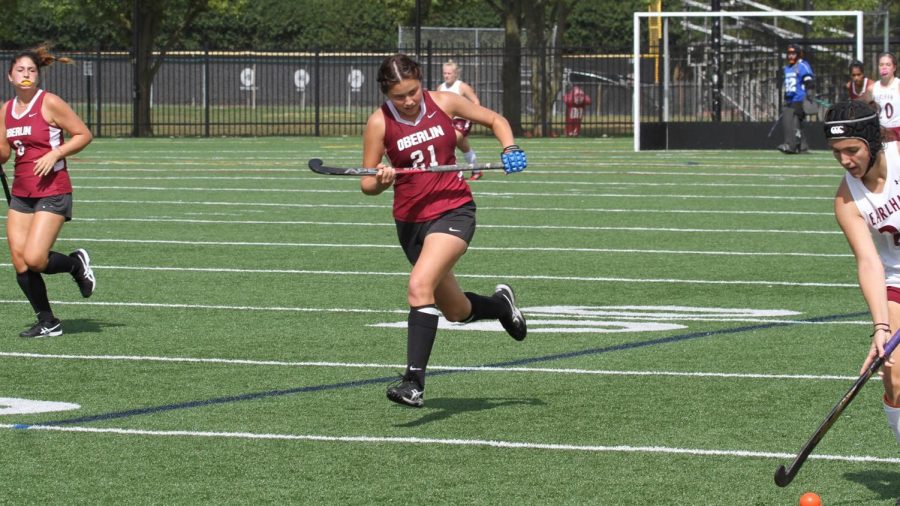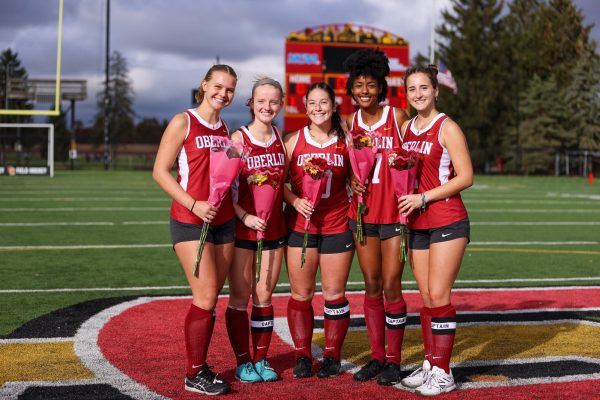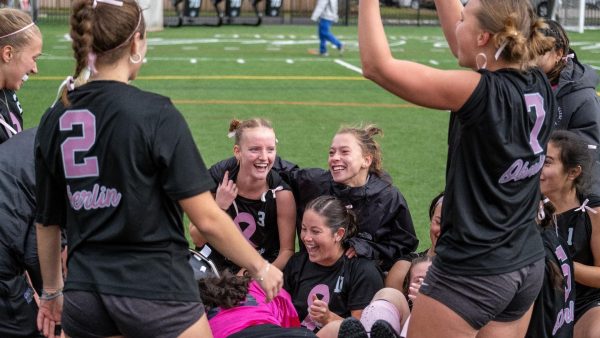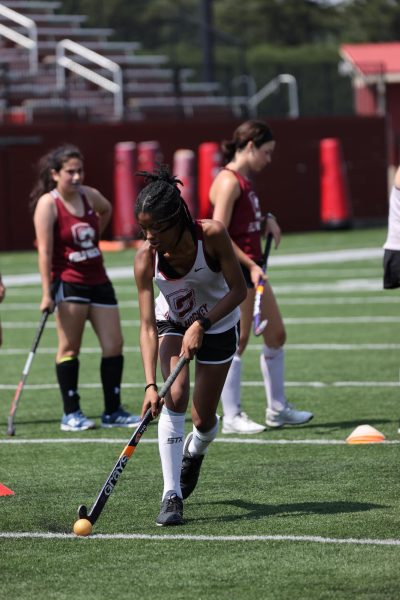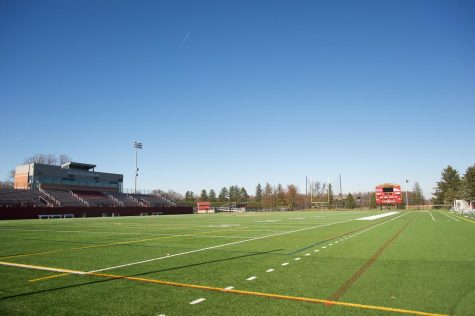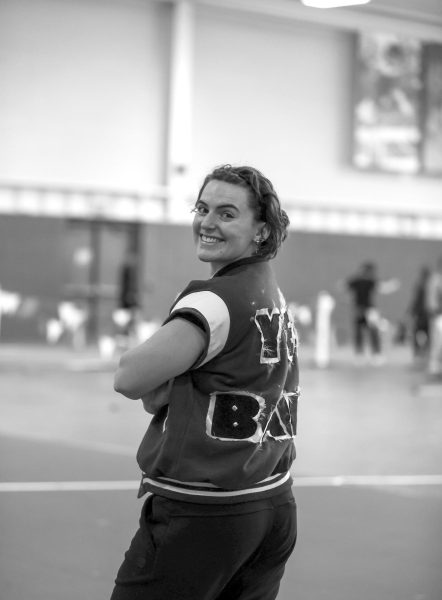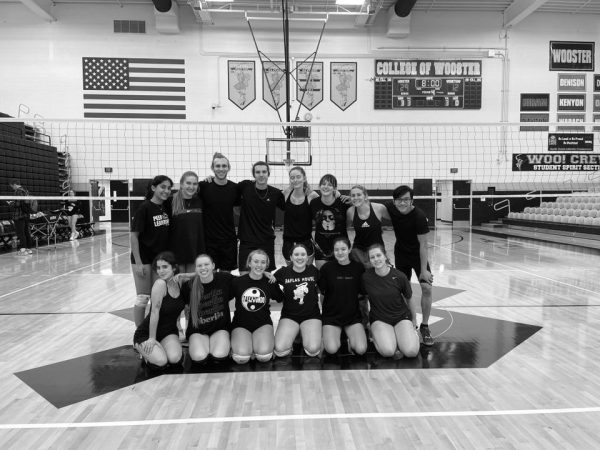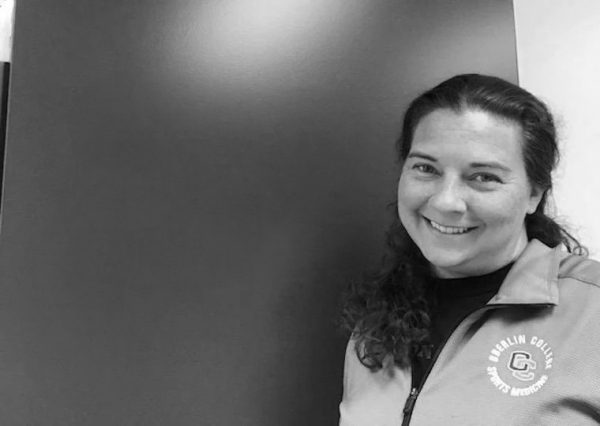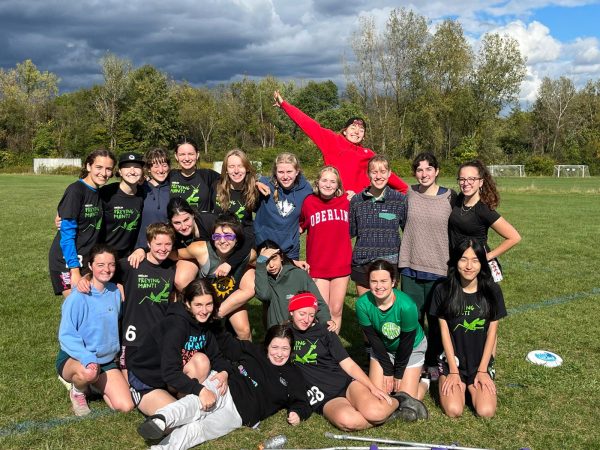In The Locker Room With Lea Watkins-Chow, Co-oper, Field Hockey Extraordinaire
College third-year Lea Watkins-Chow.
College third-year Lea Watkins-Chow has played field hockey since high school. On campus, she is involved in a variety of communities: She is a dedicated member and student administrative assistant of Oberlin Student Cooperative Association and officer of the Multiracial Students Association. She applies her interests in Environmental Studies and East Asian Studies to her honors project and various other positions around campus. Watkins-Chow is someone who gives 100 percent both on and off the field. She cares about supporting her communities and is busy preparing for her senior season of field hockey.
This interview has been edited for length and clarity.
How long have you played field hockey?
I’ve played for seven years. I decided in high school that I should maybe play a sport, and I’m not a competitive person — and a lot of people in my high school didn’t play field hockey — so it felt like something I could pick up.
What is your favorite memory from your time on the Oberlin field hockey team?
It was one evening in the winter where we had just gotten out of practice. My teammate Hayley [Segall, OC ’20] ran out onto the field and started playing in the snow. Our away games are also always fun because we get to spend a lot of time together, and it always ends in a lot of laughter. It’s hard to pick one memory because there are just so many times where I have felt very supported by my teammates. It’s the little moments and feelings of love and support that make the team so wonderful. We also have a loving family dynamic and a team that has diverse interests and experiences. We all support each other when we’re doing our own thing off the field and we come together and support each other when we’re playing field hockey.
What are you looking forward to in your last season of field hockey?
I’m just excited to play hard. Being competitive is not one of my strengths, but since this is my last season, I want to leave it all on the field every game.
Outside of athletics, what other activities are you interested in?
I’m an Environmental Studies major with a minor in East Asian Studies. I’m one of the Environmental Studies major student representatives and I work with the Luce Initiative on Asian Studies and the Environment, which has been a cool opportunity because of its niche focus on Asia and the environment. I also work at the Oberlin Greenhouse, which is the best gig on campus. I always say I’m the brawns, not the brains, because I’m mostly in charge of sweeping, weeding, repotting, and scrubbing pots. OSCA is also an important part of my Oberlin experience. I lived and dined in Harkness Co-op my first two years and I’ll be dining in Third World Co-op this upcoming year. I also work as the student administrative assistant in the OSCA office.
You recently found out that your Environmental Studies honors project was approved. What is the focus of your project?
I’m still working to narrow down my topic, but broadly, I’m interested in looking at agriculture in Taiwan as a site of colonization and resistance. I want to consider how land ownership has facilitated settler naturalization in Taiwan and how land rights have been a really central goal of indigenous activism. I want to learn more about the histories of land surveys, agricultural extensions, and environmental organizations or policies being tools of oppression; and try and consider futures where they are actively not. There is a lot of history and many layers to be explored and it’s something that feels not only “academically intriguing,” but meaningful to me personally.
This semester you’re also in the Taiko ExCo. What sparked your interest in learning more about this art form?
This is my first semester ever doing taiko, but over the past three years I’ve gone to many of the shows and showcases. Even during my first semester at Oberlin, I was drawn to it as an audience member because I could see and feel the people playing. But I never saw myself participating because I don’t think of myself as a musically talented person. This past spring semester, I was in an environmental anthropology class and we read an ethnographic piece on taiko by Deborah Wong called “Moving From Performance to Performative Ethnography and Back Again.” She wrote, “I was drawn to it as an Asian American audience member, and I simply wanted to learn how to be Asian American through the loudness and physicality of taiko.” This resonated with me, and taiko has given me the opportunity to learn more about the history and significance of taiko as an art form in the Asian American community.


